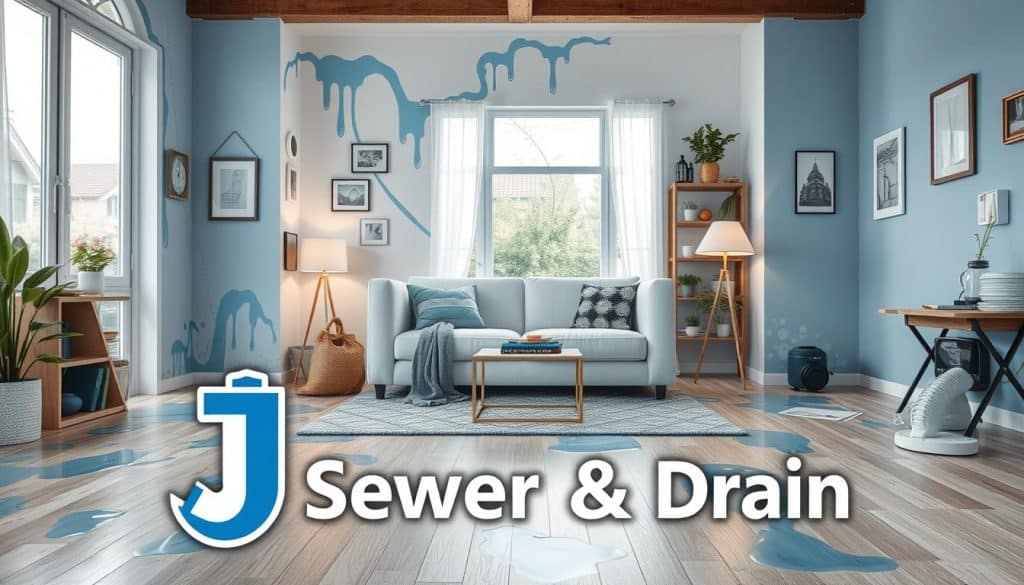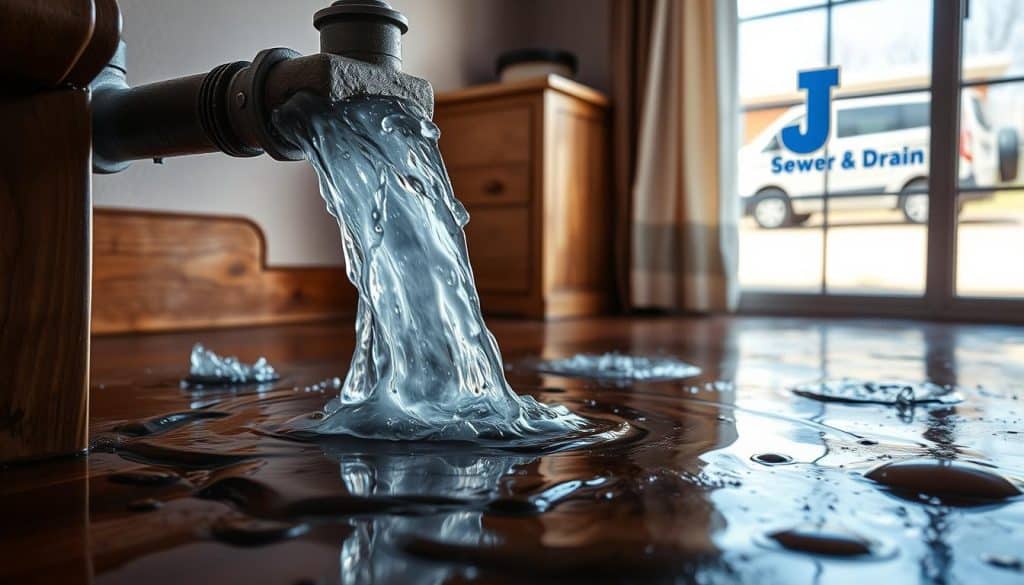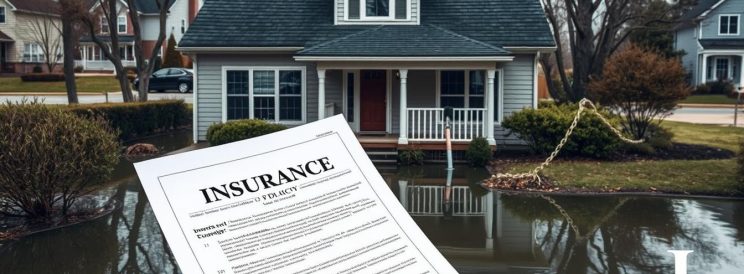Ever wondered if your homeowners’ insurance will help with plumbing disasters? Issues like bursting pipes or sudden leaks can cause a lot of damage. But Will my Homeowners’ Insurance Cover Emergency Plumbing Repairs?
Homeowners’ insurance is meant to help with unexpected damage, including plumbing emergencies. It covers damage that’s sudden and not caused by neglect. Knowing what your policy covers is key to avoiding surprises when trouble hits.
Understanding your ‘homeowners insurance water damage coverage’ is very important. Insurance companies check if you’ve taken steps to prevent damage, like insulating pipes. With companies like J Sewer & Drain Plumbing Inc. offering guarantees, knowing your coverage is even more crucial.
Key Takeaways
- Homeowners’ insurance can cover emergency plumbing repairs if they are sudden and accidental.
- Policies generally look for unexpected and unpreventable incidents.
- Routine maintenance issues often fall outside standard coverage.
- Taking preventive measures can influence your claim approval.
- Check your policy to understand your specific homeowners insurance water damage coverage.
- Reputable providers like J Sewer & Drain Plumbing Inc. offer guarantees and promotions that can complement your insurance coverage.
Understanding Homeowners’ Insurance and Plumbing Coverage
Knowing what homeowners’ insurance covers is key when plumbing problems arise. This insurance helps protect homeowners from sudden and unexpected damages. It gives peace of mind during emergencies. Yet, it doesn’t cover wear, tear, or negligence.
Overview of Homeowners’ Insurance
Homeowners’ insurance covers many types of damage, including some plumbing emergencies. It can be a big help in times of crisis, like burst pipes. But, not all plumbing issues are covered. The cause of the damage and your policy details decide how much you’re covered for.
Common Plumbing Issues and Their Impacts
Plumbing problems range from small issues like dripping faucets to big emergencies like burst pipes. Homeowners worry most about the big problems when it comes to insurance claims. Some plumbing issues are covered by standard policies, but others, like neglect, might not be. Neglect can lead to big damages that need extra insurance.

Scenarios Covered by Homeowners’ Insurance
When plumbing emergencies strike, knowing what homeowners’ insurance covers is key. Understanding your water damage insurance can help you handle these crises better.
Burst Pipes
Burst pipes are a common issue, often caused by extreme weather. Your insurance usually covers damage from burst pipes. This includes fixing structures and replacing personal items. But, you might need extra policies for plumbing fixture repairs.
Appliance Leaks
Leaks from appliances can cause a lot of water damage. Insurance for plumbing emergencies often covers the damage from these leaks. It can help pay for fixing floors, walls, or furniture damaged by leaks from appliances like dishwashers or washing machines.
Overflowing Toilets and Bathtubs
Insurance also covers damage from overflowing toilets and bathtubs. It helps with the costs of fixing water damage. But, it might not cover the cost of fixing the faulty toilet or bathtub itself.
It’s important to check your insurance policy. Also, think about getting extra coverage, like equipment breakdown insurance. This can help protect you from plumbing emergencies more fully.
Common Plumbing Problems Not Covered by Homeowners’ Insurance
Homeowners insurance protects a lot, but not everything. It’s key to know which plumbing issues aren’t covered. This includes filing claims for leaks or burst pipes. Knowing what’s not covered can help you plan for unexpected costs and consider extra insurance.

Sewer Backups and Sump Pump Failures
Sewer backups and sump pump failures are often not covered. You need extra water backup insurance for these. So, any damage from these problems won’t be covered by your homeowners insurance.
Flood Damage
Flood damage is another big gap in standard insurance. It includes water damage from natural events like heavy rain or rising water. You need a separate flood insurance policy for this. If you live in a flood area, get this insurance to avoid surprises when filing claims.
Maintenance and Wear and Tear
Insurance doesn’t cover routine maintenance or wear and tear. Homeowners are expected to keep their homes in good shape. Ignoring small problems can lead to big repair bills. So, regular maintenance is crucial to avoid extra costs.
When Should You File a Home Insurance Claim for Plumbing Issues?
Filing an insurance claim for plumbing repairs is a big decision for homeowners. You need to carefully look at the damage and other factors to decide. Knowing when to use your homeowners insurance for water damage is key.
Assessing the Damage
Start by checking the damage carefully. A small leak might not need an insurance claim if it’s cheap to fix. But, big water damage from burst pipes or leaks can cause serious problems. This might include damage to your home’s structure and mold growth, making a claim necessary.
It’s important to take photos and notes of the damage. This helps when you file your insurance claim.
Understanding Your Deductible
Your deductible is a big part of deciding on a plumbing insurance claim. If the repair cost is less than your deductible, it’s better to pay yourself. But, if the cost is more, filing a claim might be the smart choice.
Always know what your policy says. This helps you understand the costs before you decide.
Impact on Insurance Premiums
Filing a claim can affect your insurance rates in the long run. While insurance can help with big repairs, small claims might raise your rates. Homeowners should think about how a claim might change their rates.
In some cases, getting help from experts like J Sewer & Drain Plumbing Inc. in Chicago, IL, might be cheaper than using insurance.


